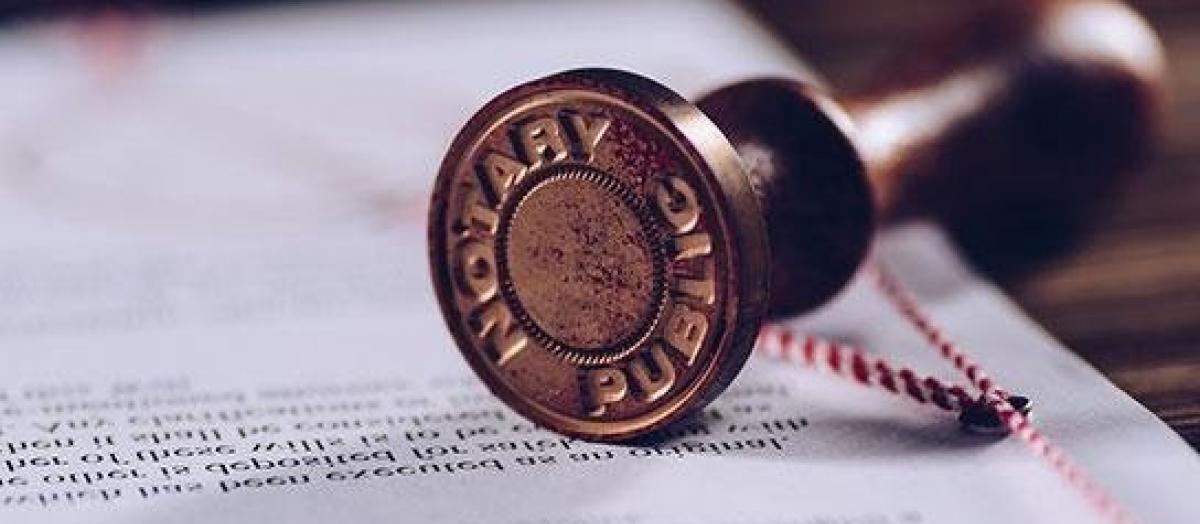Experienced Conveyancer: Navigating Property Transfers with Experience
Experienced Conveyancer: Navigating Property Transfers with Experience
Blog Article
Debunking Notarial Work: Simplifying the Function and Significance of Notaries
Their function, commonly shrouded in secret for lots of, lugs significant weight in guaranteeing the credibility and stability of crucial documents. By deciphering the intricacies shedding and bordering notarial practices light on the significance of their acts, a clearer understanding arises of the important role notaries play in promoting the textile of legal and legal arrangements.
The History of Notarial Work
The history of notarial work dates back to old worlds, where scribes played an important duty in videotaping vital details and validating records. This led to the growth of notaries, individuals appointed by the state to act as impartial witnesses in lawful issues.
During the Center Ages, notaries gained prominence in Europe, with their functions increasing to include composing lawful documents, certifying signatures, and preserving documents. The rise of international trade even more emphasized the relevance of notarial operate in confirming agreements and arrangements across boundaries.
In the modern-day era, notaries proceed to play a vital role in lawful and company transactions by confirming identities, validating the credibility of documents, and avoiding fraudulence. Their duty in accrediting the credibility of contracts includes a layer of protection and trust to the ever-evolving landscape of commerce and regulation.

Duties and Duties of Notaries
Notaries play an essential role in verifying the credibility of records and the identification of signatories. One of their key obligations is to witness the signing of crucial papers, such as agreements, acts, and wills, to ensure that all celebrations are getting in into agreements intentionally and willingly.
They license duplicates of initial records, offering guarantee to organizations that the duplicates are real replicas of the originals. In general, the obligations and duties of notaries are vital in safeguarding the stability and legality of numerous records and transactions - Notary.
Notarial Certificates and Signatures
Exemplifying meticulous interest to information, notarial certifications and signatures work as crucial components in confirming the authenticity of lawful documents. Notarial certifications typically contain essential info such as the date of notarization, the names of the signatories, a description of the record, and the notary's official seal. These certificates give a clear record of the notarial act, guaranteeing that the file can be easily recognized and traced back to the notary who looked after the procedure.
Trademarks play a pivotal function in notarial work, as they represent the agreement and permission of the parties involved. Notaries thoroughly witness the signing of files to verify the identity of the signatures and confirm that they are signing of their very own cost-free will. By fastening their main seal and signature to the paper, notaries license that the necessary procedures have been complied with and that the document is enforceable and legitimate.
Essentially, notarial certifications and signatures are the characteristic of credibility in lawful deals, offering guarantee to all celebrations involved that the documents are genuine and binding.
Importance of Notarial Acts

Notarization Process Discussed
The notarization process typically starts with the private offering the file to a notary public. When the identity is confirmed, the notary makes sure that the specific authorizing the paper does so voluntarily and without any kind of browbeating.

Final Thought

Notarial certifications usually include vital info such as the day of notarization, the names of the signatures, a description of the file, and the notary's main seal. These certifications supply a clear document of the notarial Deceased Estate act, ensuring that the document can be easily identified and traced back to the notary who managed the process.
By attaching their main seal and signature to the document, notaries certify that the needed procedures have been adhered to and that the file is legitimate and enforceable.
By validating the identity of the signatories, validating their readiness to get in into the agreement, and certifying the date and area of the finalizing, notaries play a crucial function in promoting the credibility of legal files.After the document is authorized, the notary will certainly affix their main seal or stamp onto the file.
Report this page